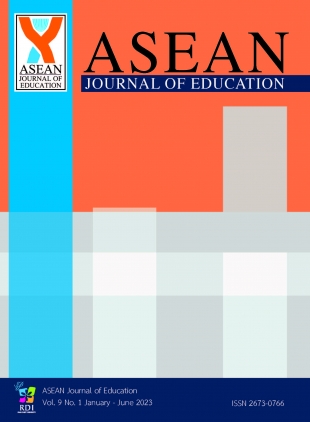Systematic Review and Meta-Analysis on the Implementation of “Brigada Eskwela” in Philippine Public Schools
Keywords:
Assessment, Brigada eskwela, Meta-analysis, Systematic review, School improvement planAbstract
This study assessed the “Brigada Eskwela” implementation among Philippine public schools. Specifically, this paper identified and analyzed the strengths, weaknesses, opportunities, and threats of “Brigada Eskwela” as a method to recommend strategies to improve and sustain its implementation. The primary sources of data are research articles about the implementation of “Brigada Eskwela” which were collected from different online resources by conducting a systematic review and meta-analysis. The proposed strategies were developed through SWOT analysis and are aligned with the vision, mission, core values of the Department of Education to improve and sustain the “Brigada Eskwela” implementation in Philippine public schools. The results revealed that the “Brigada Eskwela” program of the Department of Education is beneficial for schools and its driving forces are already present within the school. These include the leadership capability of the heads of school, the availability of workforces such as teaching and nonteaching personnel, parents, and volunteers, support from stakeholders, and innovations to improve the school. As to weaknesses, the findings revealed inadequate school resources, proper planning mechanisms, and effective communication of the implementation plan. There is also a need to improve the preparation and presentation of reports and make them more substantial. In terms of opportunities, it is evident that parents, students, the community, and other stakeholders including private individuals or organizations are responsive to the call for volunteerism and partnerships. Threats include the location of the school, availability of private individuals or organizations, access to stakeholders, low economic status of parents and community, and stakeholders’ negative attitude towards the program.
References
Azainil, A., Komariyah, L., & Yan, Y. (2021). The effect of principal's managerial competence and teacher discipline on teacher productivity. Cypriot Journal of Educational Sciences, 16(2), 563-579.
Cajucom, E. (2017). Environmental Education Integration Among Public Schools in A Division of Region 02: Featuring the best practices of sustainable and eco-friendly schools. Retrieved from https://doi.org/10.13140/RG.2.2.24939.46883
Cando, V. (2016). Narrative Report on Brigada Eskwela SY 2016-2017. Retrieved from https://www.scribd.com/document/324741128/NARRATIVEREPORT-ON-BRIGADA-ESKWELA-finaldocx
Catid, M. B. (2022). Leadership practices: Impact on Brigada Eskwela level of implementation. IJRP International Journal of Research Publications, 97(1), 145-160.
Dechos, R. L. Jr. (2017). Level of Brigada Eskwela Implementation and Challenges Encountered: Basis for an Action Plan in the Division of Iligan City, An Action Research for the School Governance and Operation Division (SGOD) Office of the Social Mobilization and Networking Unit. Retrieved from https://www.academia.edu/35322481/Dechos_Action_Research
Department of Education Order No. 12, s. 2020. (2020) Adoption of the basic education learning continuity plan (BE-LCP) for the school year 2020-2021 in light of the COVID-19 public health emergency. Retrieved from https://www.deped.gov.ph/2020/06/19/june-19-2020-do-012-2020-adoption-of-the-basic-education-learningcontinuity-plan-for-school-year-2020-2021-in-thelight-of-the-covid-19-public-health-emergency/
Digo, G. S. (2021). School performance and the proposed strategic plan: The case of a laboratory school. JISR Management and Social Sciences & Economics, 19(2), 94-105.
Digo, G. S. (2022). Towards the preparation of strategic plan for teacher education programs. ASEAN Journal of Education, 8(1), 8-21.
Garcia, L. F. (2021). Best practices in Brigada Eskwela of secondary schools in Batangas province. IOER International Multidisciplinary Research Journal, 3(1), 71-78.
Manila, R. F., & Decano, R. S. (2022). School administrators' preparation, challenges, and coping mechanism in the implementation of Brigada Eskwela in the new normal. EPRA International Journal of Environmental Economics, Commerce and Educational Management, 9(1). https://doi.org/10.36713/epra0414
MNLtoday.Ph (2019). Brigada eskwela strengthens bayanihan. Retrieved from https://mnltoday.ph/2019/06/13/brigada-eskwela-strengthensbayanihan/
Oco, R. (2022). Leadership styles of school heads and its relation to school performance. Global Scientific Journal, 10(1), 1801-1815.
Requina, G. M. (2018). Level of compliance with the Brigada Eskwela implementation to DO No. 66 S. 2018 in selected public junior high schools in Laguna: Basis for an action plan. IOER International Multidisciplinary Research Journal, 4(1), 118-126.
Santos, G. (2019). Brigada Eskwela as a communitybased program: Basis for the enhancement of the school work plan. Ascendens Asia Journal of Multidisciplinary Research Abstracts, 3(8).
Sheninger, E. (2015). Transforming your school with digital communication. The Association for Supervision and Curriculum Development (ASCD), 72(7).
Torres, P. (2021). Stakeholder’s involvement to school-initiated activities of District I secondary schools: Basis for enhanced community partnership program of activities. International Journal of Innovative Science and Research Technology, 6(2), 481-490.
Usop, J. L. (2022). Evaluation on the implementation of the administrators' strategic directions in Bangsamoro Autonomous Region in Muslim Mindanao (BARMM). South Florida Journal of Development, 3(4), 4570-4581.
Downloads
Published
How to Cite
Issue
Section
License

This work is licensed under a Creative Commons Attribution-NonCommercial-NoDerivatives 4.0 International License.
1 All articles will undergo a formal peer-review. A panel of experts from within or without the university will examine the article; approval from a minimum of two experts is required for publication. Revisions posed by the experts must be completed by the research prior to publication.
2 Once published in the ASEAN Journal of Education, the article becomes intellectual property of Suan Dusit University. Duplication, in full or part, requires permission from Suan Dusit University.
3 Excluding errors incurred during printing, author(s) are responsible for the content of their articles.






